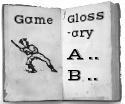Russian Baseball
| Game | Russian Baseball |
|---|---|
| Game Family | Baseball |
| Location | |
| Regions | US |
| Eras | Derivative, Post-1900 |
| Invented | No |
| Tags | |
| Description | On March 15, 2021, SABR member Rich Moser of (Town?, CA) recalled a game organized by his junior high teacher in California in 1973. He remembers that it had these rules: "1. only two (running) bases instead of three 2. no tagging a base to get a runner out, meaning the fielders had to tag the runners 3. no baseline rules, so a runner could run anywhere he wanted to avoid being tagged—except he had to stay on campus. He could elect to hide in the distant outfield or the shrubbery to distract the defense, so they might forget about other runners and let them score 4. multiple runners could occupy the same base at a time 5. there was no foul territory, so batters could elect to turn and hit the ball backwards or to wherever there weren’t any fielders." Plugging runners was not allowed. Players used gloves and played with a soft ball.
|
| Sources | Rich Moser, posting to SABR discussion group, 3/15/2021, and email to Protoball on 3/28/2021. |
| Source Image | [[Image:|left|thumb]] |
| Comment | This game was introduced by the late W. E. Bazemore, who grew up in OK and taught it to PE classes in CA. This variation some relation to the traditional Russian game of lapta, as can be seen in several YouTube. More generally, multiple runners per base are allowed in the forms of longball associated with games in northern Europe, including brannboll in Sweden and schagball in Germany. Aleut baseball, remembered in Alaska in a 2010 paper, also may be a reflection of lapta, since that land was colonized by Russia prior to the Alaska Purchase of 1867. The lack of baselines, and the tolerance of elusive baserunning, has been hypothesized for some American baserunning games, although such variants must have tested the patience of players. One wonders if other hybrid schoolyard baserunning games may have been played, depending perhaps on the size and layout of diverse facilities. Edit with form to add a comment |
| Query |
Was this a team game or a rotational scrub/workup game?
Edit with form to add a query |
| Has Supplemental Text |
Comments
<comments voting="Plus" />
